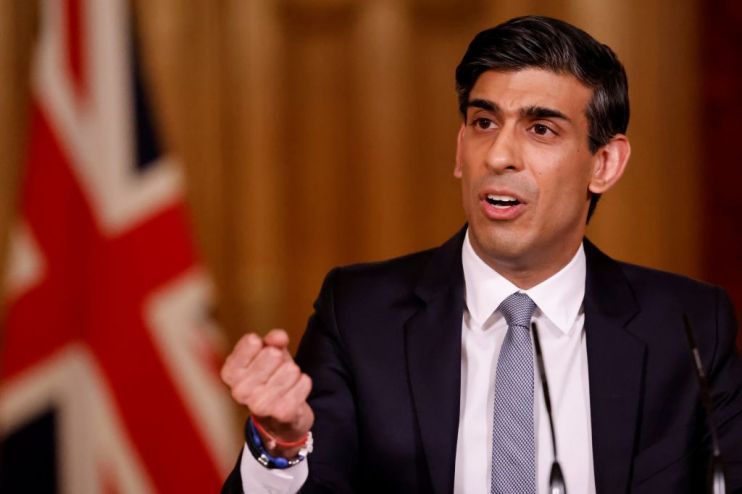If Sunak’s budget delivers for financial services, they can deliver for the globe

At Conservative party conference, the Chancellor promised to deliver an economy based on “good work, better skills and higher wages” and embrace “the agility, flexibility and freedom provided by Brexit”. This will create a dynamic, high-tech economy.
Financial services are critical to delivering this ambition. The engine of the UK economy has not only withstood the challenges of the last 18 months, but it did so while providing almost £80bn of business support loans under the Government’s Covid-19 response schemes and with a proportionately lower take up of furlough. The industry has also embraced the opportunities driven by technological innovation and green finance. As Sunak says, it is the markets’ deep and liquid pools of capital that will turbocharge our recovery and hasten our progress to net zero.
In Wednesday’s budget, the Chancellor is expected to extend the Recovery Loan Scheme for UK businesses, another clear sign that this Government is willing to show flexibility and pragmatism when it comes to supporting our economic recovery. Such a move will spur investment and offer further reassurances to businesses operating across the UK.
As political attention now starts to look beyond the pandemic, as people start returning to offices, and as post-Brexit inertia starts to lift, it is time to ask “what’s next?”. How will financial services continue to evolve, deliver for its customers and create jobs fit for the future?
The answer is clear: we need an open, competitive financial services sector. We need to be at the cutting edge of digitalisation and green finance, while adhering to the highest global standards. Last week, Sunak reminded us of the importance of taking risks and being imaginative. Leaving the EU enables us to seize the opportunities we didn’t – rather than couldn’t take – as part of the bloc. The UK’s unequivocal commitment to green investment is one example that will drive innovation.
This, combined with his Mansion House speech earlier in the year, which underlined the need to broaden the competitive advantages of UK financial market structures, sets a clear direction for the City.
At its simplest, finance is about connecting those with the need for capital with those that have it. By providing a service that is open, transparent, predictable and efficient, we can service buyers and sellers, savers and borrowers, across the globe. Emerging and growth markets are already looking to the UK regulatory frameworks and principles as they broaden and deepen their capital markets, which will in turn provide global pools of liquidity to which the City of London is expert at connecting.
This approach is writ large when it comes to the dual challenge of servicing emerging markets and climate change. Never in our history has there been a greater capital need than that facing the high-growth, high-emissions nations in the Global South, and their fight to mitigate catastrophic climate change. The test for London is whether we can intermediate that capital at scale.
We have to think not only about Britain, but about our global connectivity customers and what they need. We need to turn to opportunities in Asia and Africa.
The capital demands of respective nation-state commitments under the Paris Agreement are clear, as is investor appetite for climate and broader ESG investing. London must put them together. With tough negotiations ahead of Cop26, the private sector must step into the breach. This means leadership from UK financial services, with clear backing from government.
Similar principles also apply to technology and innovation. Technology is about improving service delivery and customer experience. The regulator’s duty is more nuanced than simply protecting consumers – its counterpart is innovation. It is through this lens that our approach to new innovative, green finance mechanisms or digital currencies, for example, must be seen. It is clear that both institutional and retail customers want exposure to them. If it can improve service delivery and customer outcomes, then it should be enabled. Even where this goes against the power of incumbents – after all it is not London’s current status but our open approach to innovation that will secure our future.
Financial services are ultimately about empowering a network. The bigger the network the more powerful it becomes, and the more value it can deliver. We can only build this by embracing a spirit of openness.
